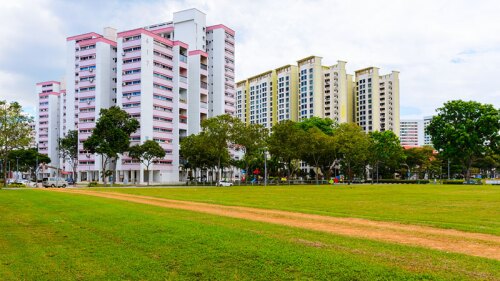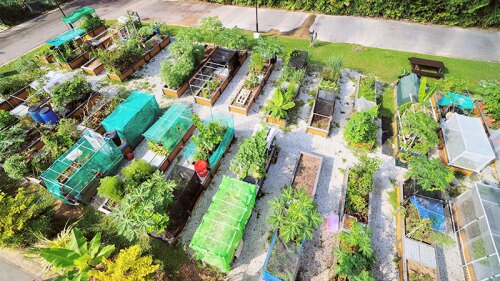Niche strategies and development are high on the agenda for investors looking to hit their return targets in South Korea. A group of private-equity real estate managers gathered at the ULI South Korea Annual Conference, held in Seoul in January to discuss capital markets in Korea and further afield.
Kyung Paik, managing director at IGIS AssetManagement Korea, moderated the panel.
David Cheong, director at KKR Asia Limited,said: “We are starting to see a lot of questions from investors around data centers,and I think that is largely a function of yields being very low in the realestate industry and people looking for alternatives to traditional real estate sectors.But a lot of people are also here struggling to strategize around data centersbecause of a lack of information and operating partners.”
Brookfield has a data center operatingplatform and is actively seeking opportunities in South Korea, said Wonbin Suh,vice president, investments, Brookfield Korea, noting that data centers were ateam effort between Brookfield’s real estate and infrastructure divisions.
Meanwhile, Scott Choi, director at ActisKorea, said his firm was in the early stages of developing a “hyperscale” datacenter in South Korea. “The demand for data centers is quite clear, with ever-growingmobile telecommunication technology.” He also pointed out that South Korea wasthe first nation in the world to launch a 5G network. “Although it is still atan early stage, once it is stabilized, data consumption will growexponentially.”
Much of the discussion centered on thelogistics sector. Cheong said that 30 percent of retail sales in South Koreaoccur online, compared with Japan, for example, where the total is only 8percent.
“And if you look at the sophistication ofthe logistics market here, it’s still in an early state compared withcomparable markets. As a consequence, you can get a development yield of around8 percent in logistics, which roughly translates to a spread of 200 basispoints, which is very wide compared to other regions.”
Cheong added that logistics “continues tobe one of the key themes that our investors around the world want to increase exposureto, especially in Asia. They’re very excited to see continued cap ratecompression, but also the fundamental growth in the sector around the world.”
U.S. investment manager Heitman has not yetinvested in South Korea, said Skip Schwartz, managing director, Heitman AsiaPacific. However, it has a team on the ground and also local partners with whomit is “actively searching for opportunities.” Elsewhere in the Asia Pacificregion, Heitman has invested heavily in niche sectors such as self-storage—infour Asian nations—and in student housing in Melbourne.
The key to understanding such sectors isthat they feed off “overarching themes—demographic shifts and consumer growth,”Schwartz pointed out.
Development is a good way to boost returns,said Actis’s Choi; however, it “requires a great deal of time and energy andpeople on the ground.” Said Choi, “One of the unique features of thedevelopment space in Korea is that it’s highly fragmented. We have noinfluential developers,” thus creating opportunities for new players.
KKR is also involved in development inSeoul, having partnered with IGIS and NPS to buy a $1.9 billion mixed-usedevelopment project in the Gangnam business district. Cheong said, “The projectwas already 15 percent completed with a construction guarantee in place. All weneed to do was take on completion risk and leasing risk, which we felt verycomfortable with, given that this would be the only supply in the market in theforeseeable future.”
Suh added that Brookfield is “interested ingoing up the risk curve” and would be seeking new development opportunities.Brookfield’s purchase of the Seoul IFC mixed-use development in 2016 means thatit has an experienced team in the city.
Many investors are focused on the risk of adownturn, but the panel appeared reassured by the prospect of low interestrates in the long term and their own strategic adjustments. Schwarz said: “Wedo foresee interest rates to be at levels which are quite attractive for sometime. And real estate has been attracting capital, which leads to more pricingpressure.”
The key, therefore, he argued, was to “workharder and see where to add value, but not just through financial engineering.”
Cheong said: “It is not unreasonable to beconcerned about the risk of a correction over the next couple of years. As avalue-added fund, KKR is very focused on investing into opportunities withmultiple different ways to add value, so that if one of those things goeswrong, you can still have other levers to achieve your targets.
“Finally, we really want to keep ourinvestment duration shorter, to make sure that we are not entering into aprolonged business plan, especially in this stage of the cycle.”



